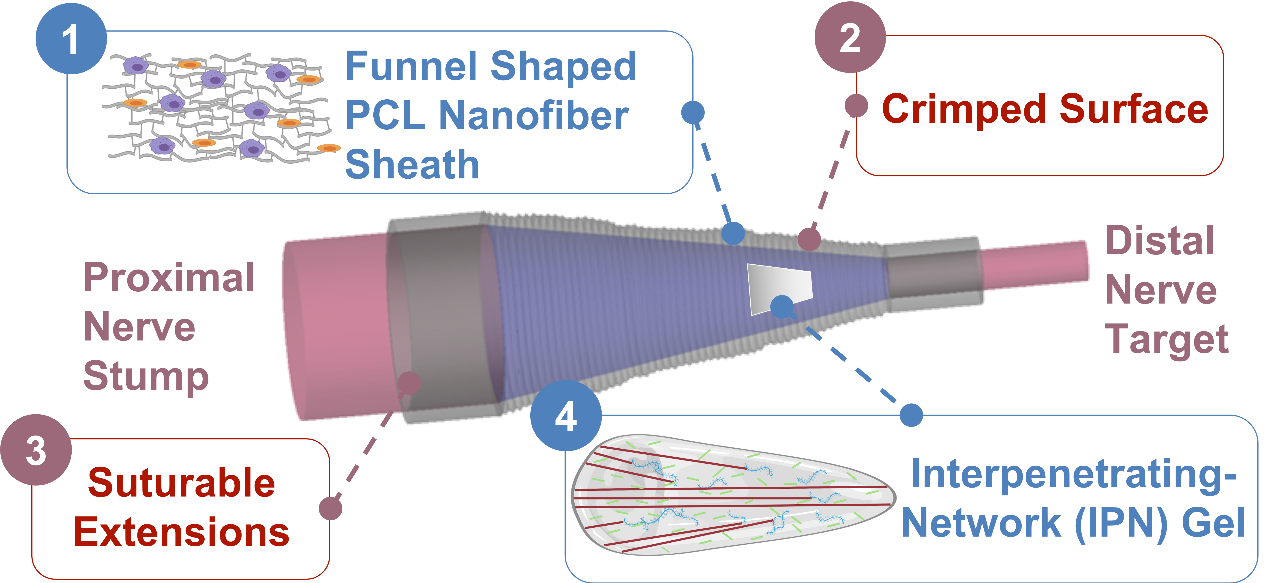Biodegradable Nanofiber Funnel Conduits for Targeted Muscle Reinnervation
Team: Innerva
Project Description:
The majority of peripheral nerve injuries (PNIs) that occur during trauma and iatrogenic injury result in pain and lifelong disability. About 72% of the 20 million PNI patients in the US fall in this category. If PNIs are not repaired and nerves are left in discontinuity, the axons regenerating from the proximal nerve stump form a painful neuroma, an aggregate of disorganized neural growth, many of which case severe pain. Currently, the most promising surgical intervention to treat PNI is targeted muscle reinnervation (TMR), a procedure that involves suturing the injured proximal nerve stump to a nearby distal nerve target in a freshly cut motor nerve. This allows the axons regenerating from the proximal nerve stump to innervate a distal target that also provides a muscle interface for the severed nerve. Despite its potential, roughly 30% of patients suffer from chronic neuroma pain following TMR. The major limitation inherent to TMR is the substantial size-mismatch between the large caliber proximal nerve stump and the much smaller distal nerve branch to which it is connected.
This project aims to design a peripheral nerve conduit to address the paradoxical issue of both promoting functional peripheral nerve reinnervation and inhibiting neuroma prevention due to the size-mismatch inherent to TMR.



